A concern many families have before they go cruising is how their children’s socialization will be shaped. What will be different from, or similar to, a mainstream socialization?
Relatives, the kids’ grandparents, and your friends may question this even more, but without the benefit of a well-researched decision to inform their views. These well-meaning folks may apply pressure through the lens of their negative assumptions.
We raised three children aboard our Stevens 47, Totem, starting from ages 4, 6 and 9 and until they left for college. I can say with confidence, boat kids have very different socialization than kids on land. In my view, this socialization offers many benefits that conventionally raised kids don’t have. The biggest problem with cruising kids and socialization is that the myth they will be inadequately socialized persists.
When we announced our departure, our decision to live so differently (instead of waiting until retirement to “have fun”) was questioned by people we loved, in particular because of assumptions they made about how it would affect our children. It wasn’t until years later when they could appreciate just how much our kids had been positively impacted by their unconventional childhood that this pressure was finally released. We could have done without the judgement.
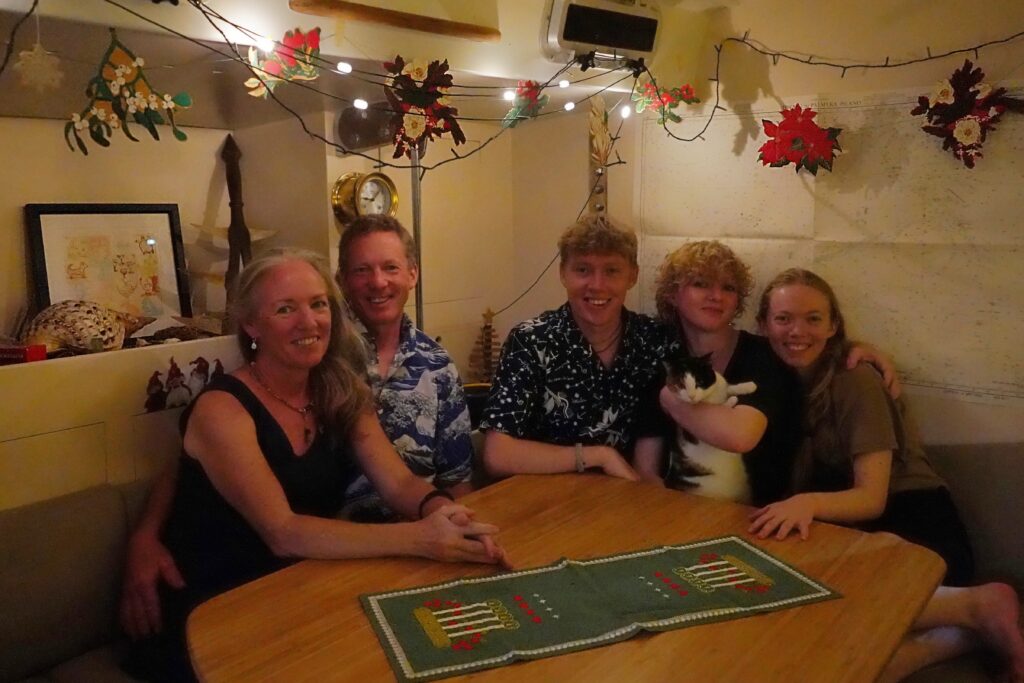
Start with: why is mainstream presumed better?
When asked by well-meaning (but uninformed) folks how cruising kids are socialized, I like to flip the question around to help them think about it. Why is mainstream socialization presumed to be better? When did we decide that putting kids of generally the same socioeconomic background into herds (classrooms) sorted by age with a single adult (teacher) to guide them was best? Why would one assume a narrow band of peer-dominated socialization provides optimal social growth? I don’t think it does, and research agrees.
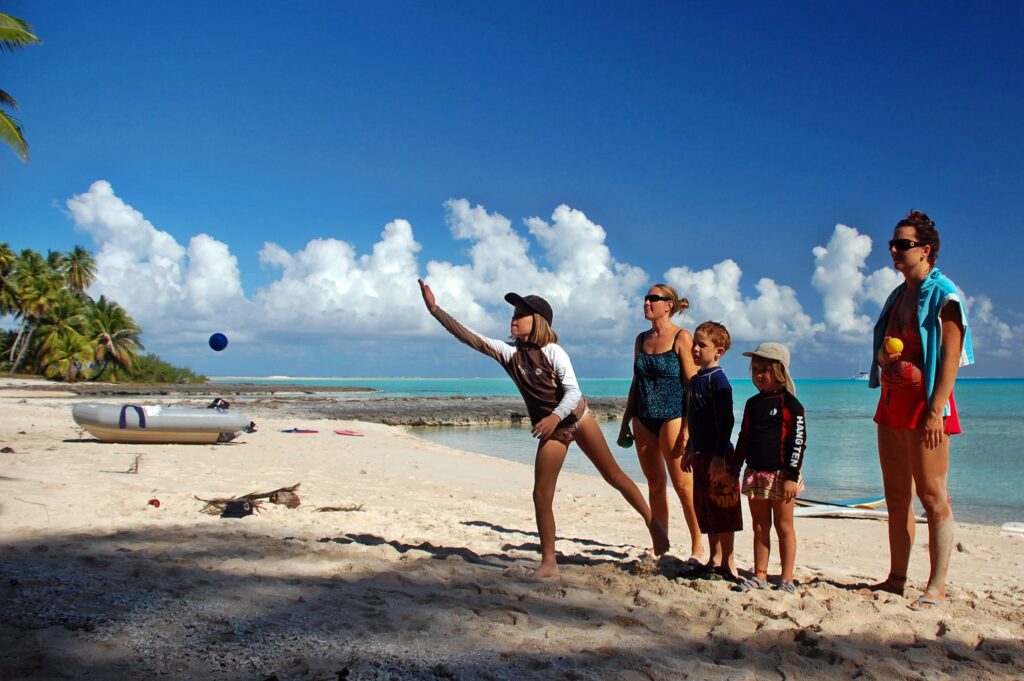
What cruising kid socialization looks like
I suspect the uninitiated imagine we are off in the middle of nowhere, alone in our travels, interacting overwhelmingly just within our family unit. It’s sometimes true, but it’s the exception. Most of our time is spent “somewhere,” among the company of other cruising families, on an extended field trip. It is rife with the interactions that shape our children’s personhood.
Our kids have to work out conflicts, and appreciate the value of friendships. They more frequently face the social challenge to make new friends. They readily engage others across age and gender, and their communication benefits from routinely socializing with adults. Everyday life, not media, informs them about the real world. They benefit from a diverse group of mentors, and what constitutes a peer has a broader definition. Cruising kids tend to readily welcome new arrivals to a playgroup or friendship circle: they quickly unlearn the false importance of age, gender, interests, or other artificial boundaries.
I see no loss in socialization among these features. I see some benefits that are difficult to get in a conventional childhood.
Critical work for parents
Unless you are lucky, you will not organically find yourself in the company of other kid boats. On a Facebook forum for cruising families one parent wondered why, after months in the popular cruising grounds of the Bahamas, they did not encounter a single cruising family. As newbie cruisers, this family didn’t realize you can’t expect it to happen organically: it takes some planning, advance research and making the effort to reach out. And then, you have to be flexible in your plans.
Finding the other kids
These three basic steps will help make sure families connect with other kid boats.
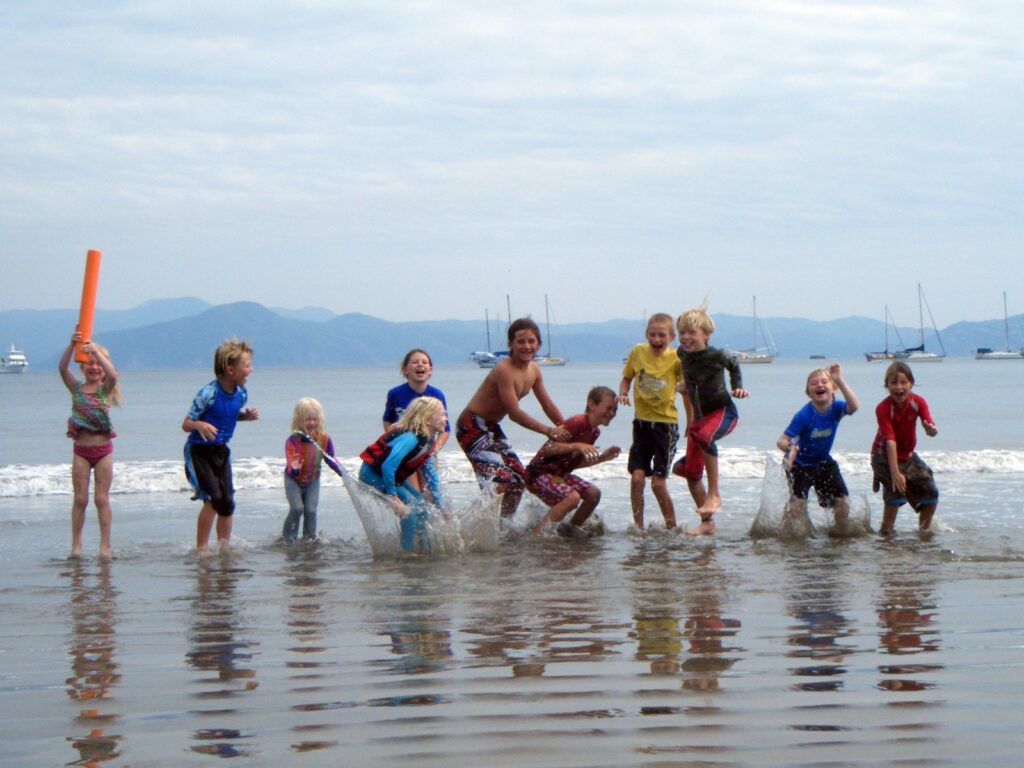
- Find the hubs. This starts with understanding the kid-boat dynamics of the region you’re in, which can vary significantly. Are there primary seasonal fleet flows in your region relative to these hubs? What hub is the center of gravity at peak season?
- Find the kid boats in the hubs. Noforeignland is the best way to do this today. Filter the view for boats belonging to the Kids4Sail and Kids4Sail-Teen groups. Check the profiles of those boats to see kids of similar ages, find their Instagram and other social links to connect. Find which NautiKids (WhatsApp community) you should join based on where you are now, and where you’re heading. Join the Kids4Sail Facebook group.
- Take action! First, ensure you are findable! Is your noforeignland profile complete (with kids ages, and links to your blog / Instagram / whatever)? Is your boat added to the Kids4Sail and Kids4Sail-Teen groups, so you can filter the map and see where other kid boats are located? Is your boat location reasonably up-to-date to help other group members find you?
Be intentional with your plans. Are you aligning them to put your family in the right place to connect with others? Families who struggle either don’t put in the effort, or have fixed plans with a schedule that doesn’t accommodate going with the flow of where the other kid boats are.
Teen years
Prepare for this to be more difficult and more work as a parent to facilitate, as older boat kids are less common: the sweet spot seems to be from around 6 to 12. It’s still possible. When we crossed the Indian Ocean with teens aboard, I spent almost a year seeking out the boats with kids, possibly still as far back as the Pacific Ocean somewhere, who might possibly be along that less-traveled route to South Africa. Introducing ourselves, our plans, and suggesting – wouldn’t it be remarkable to have a group of cruising teens in the fleet that year? Ultimately, we had more than a dozen of tween and teen cruisers sharing anchorages on and off all the way from Malaysia to Cape Town. Long term planning and effort were the key.

Returning to land
It was with trepidation that our eldest child moved ashore to start college at Lewis & Clark. He worried that he might feel different and struggle to make friends, as he was largely an outsider to mainstream culture. They are not well versed in the names of the latest celebrity news-makers, musical hits, slang, or fashion trends. For the most part, it’s because they don’t care: they’re not in a bubble, and they can find these things online, and choose what’s important to them to follow. What about going back, though?
Moving back to land brought appreciation how social skills gained from a childhood cruising provided our kids with tools to succeed. They know the work of having to introduce themselves to someone new, and make a friend. It doesn’t mean it’s easy. It does mean they find their way, and the gaps in pop culture don’t matter. Cruising imbued them with adaptability and resilience. They’re accustomed to changes in the environment, whether it’s learning the mores of a new culture or how to navigate public transit. Collectively there are many welcome trade offs, and toxic aspects of teenage life they were spared.
It’s intimidating to make the leap to raise children differently, and we’ve gone WAY off the path of the norm. It took a long time not to have a visceral reaction to “what about socialization?” question, particularly when we still had kids aboard. That put my mama bear hackles up, ready to defend my cubs. I have to remember, it’s not negative judgment, just a lack of understanding. Our differently socialized kids have become engaging and sociable adults, and they are doing fine.
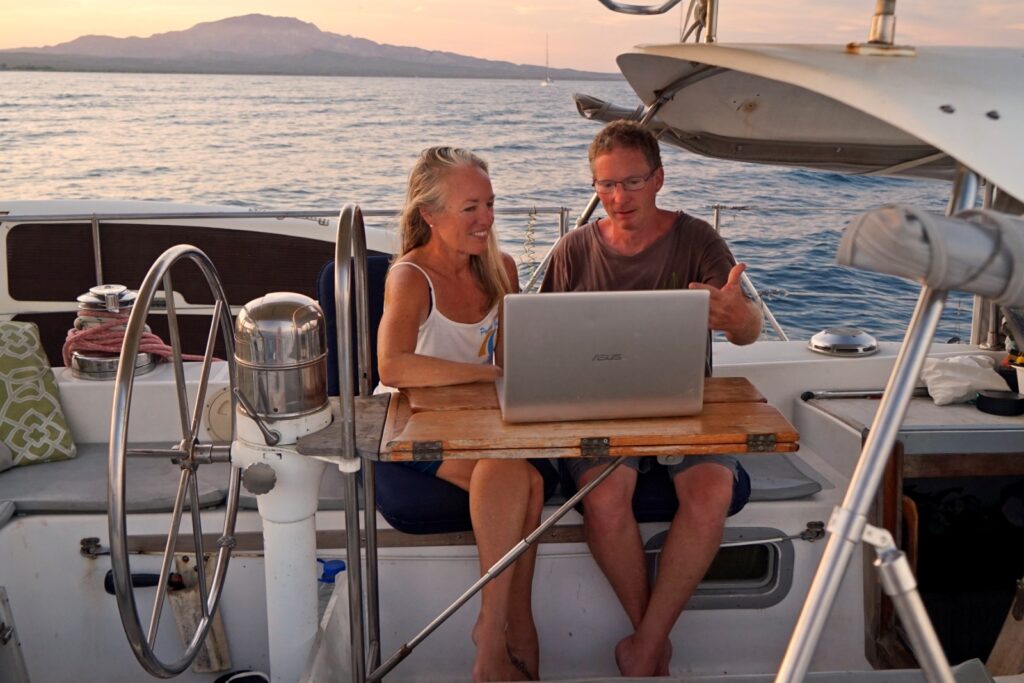






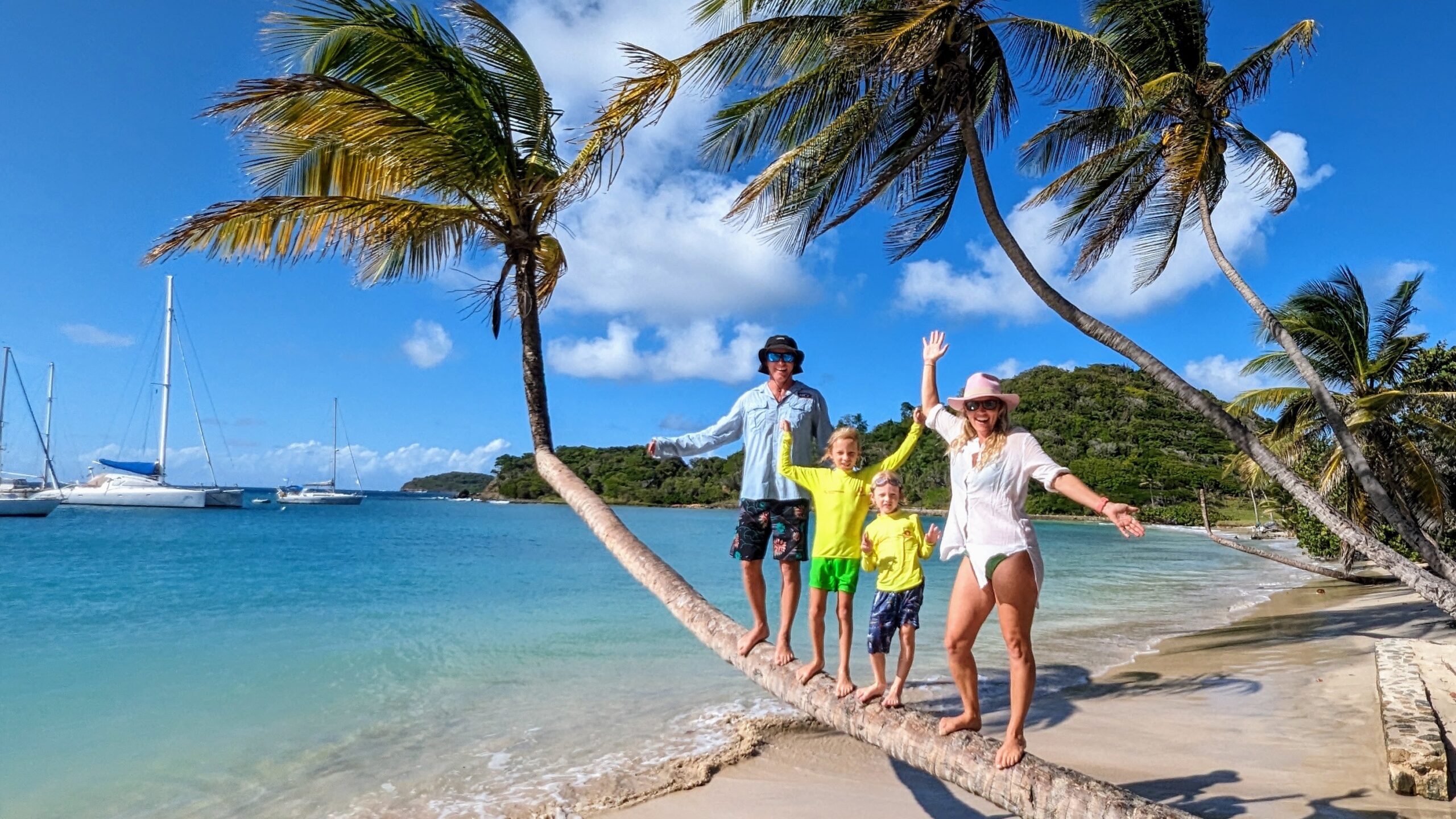
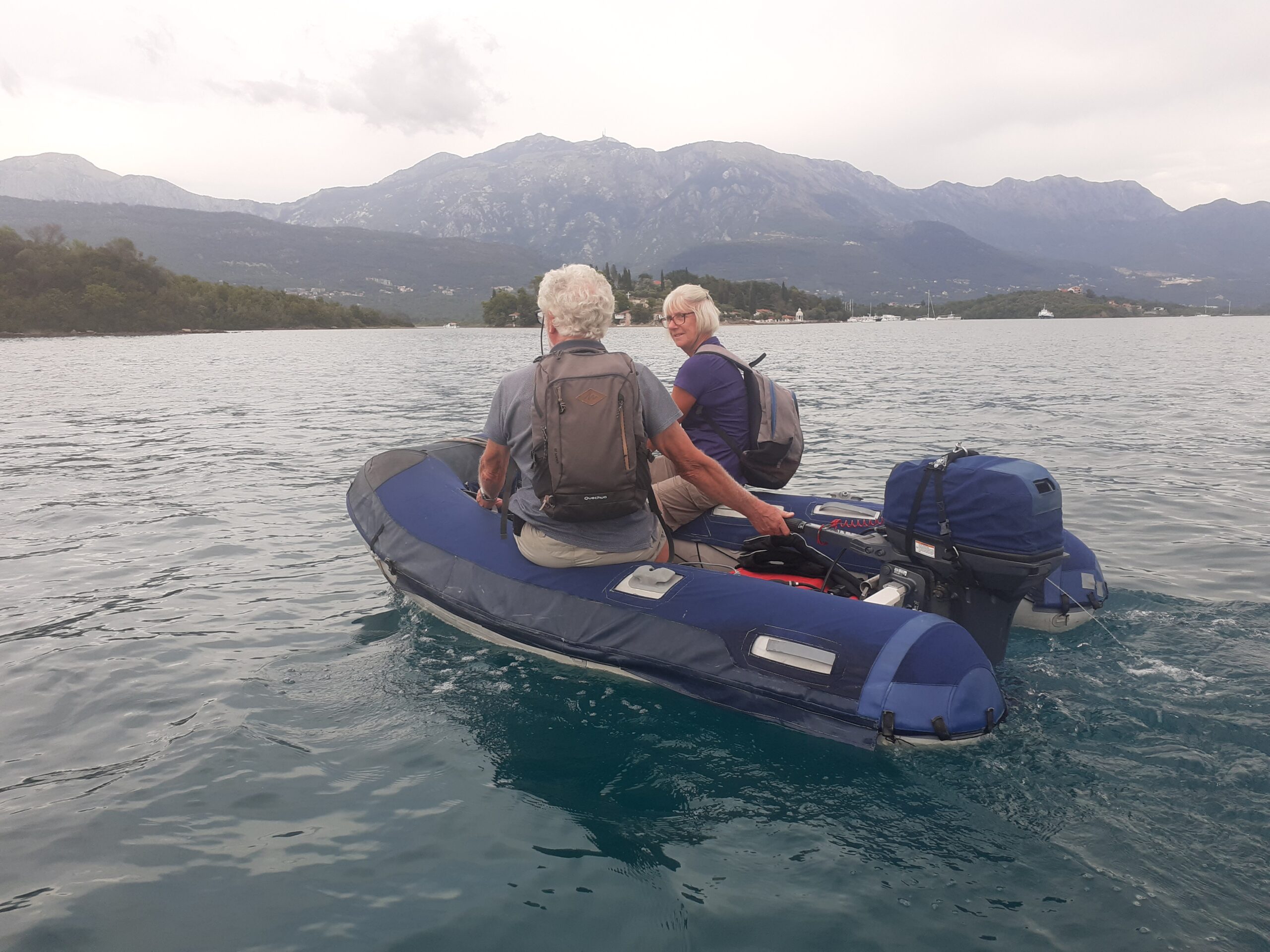
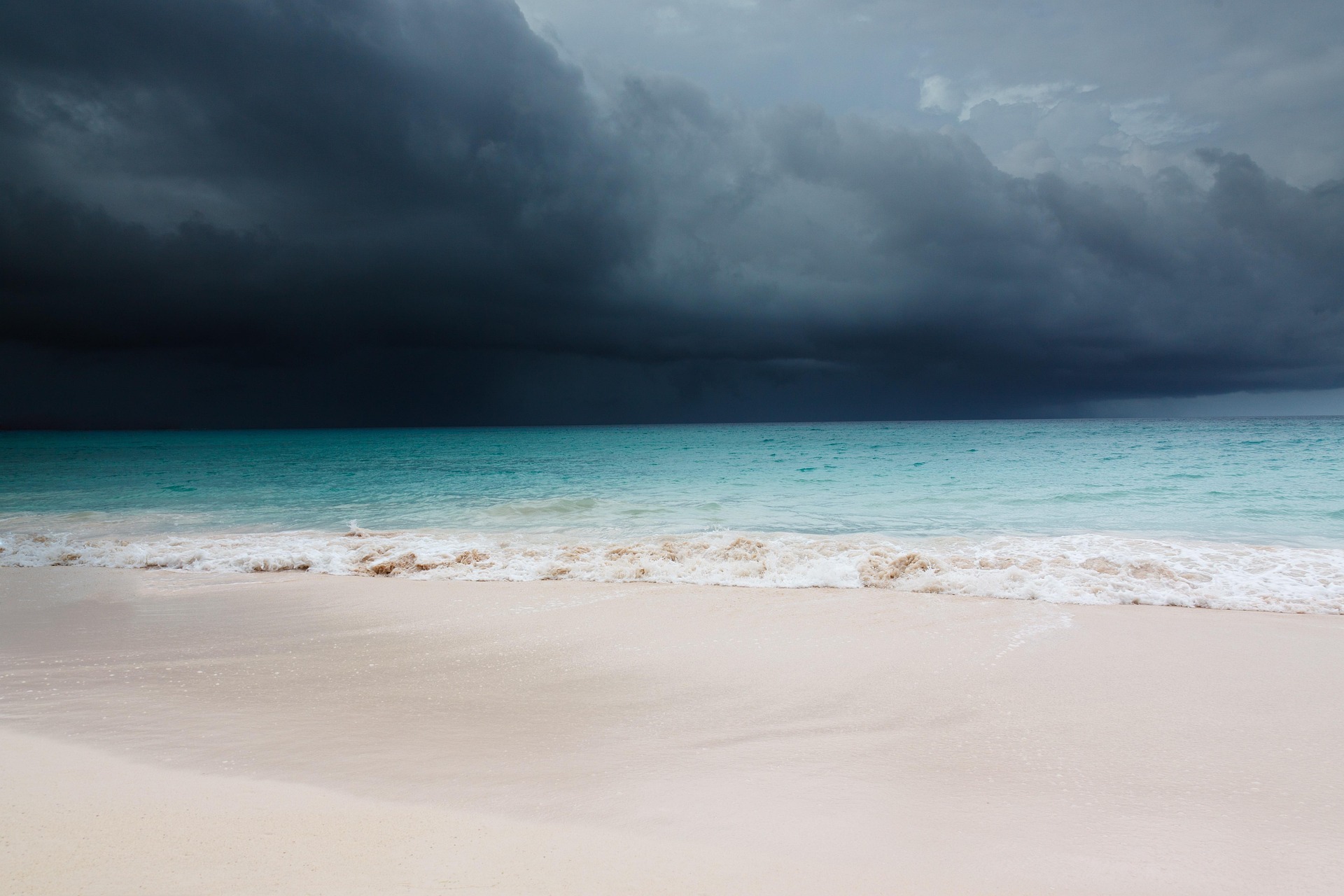
Hi Behan, what an excellent article! I interviewed fellow cruisers with kids when we set out twenty years ago. A long time cruiser laughingly told me that if the parents like travelling, chances are the kids do as well, so I should not worry too much about unrooting them. Just as you write, cruisers who plan their trip around their kids and dialogue with them about the plans seem to be functioning best. And while all boats have educational problems – it’s very difficult to keep everyone motivated – I didn’t hear a single negative story once back on land. Quite the contrary actually, the kids had learned the value of education. Cruising kids live in an every changing environment that is not based on age and that develops a set of social skills that serves them well in their adult life. Happy cruising, Katja.
Thanks Katja – I’m so glad you liked it, and appreciate your experienced POV on the value of engaging kids when making routing plans. We see it from the flip side now: making routing plans without wondering where the kid boats will be is wholly new and different!